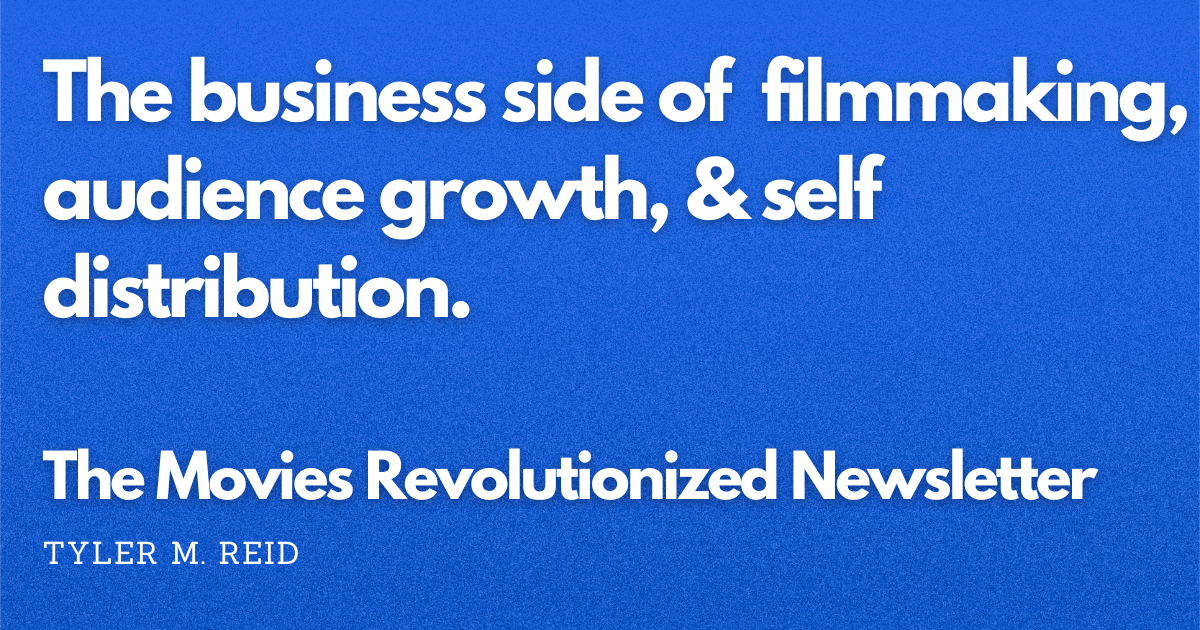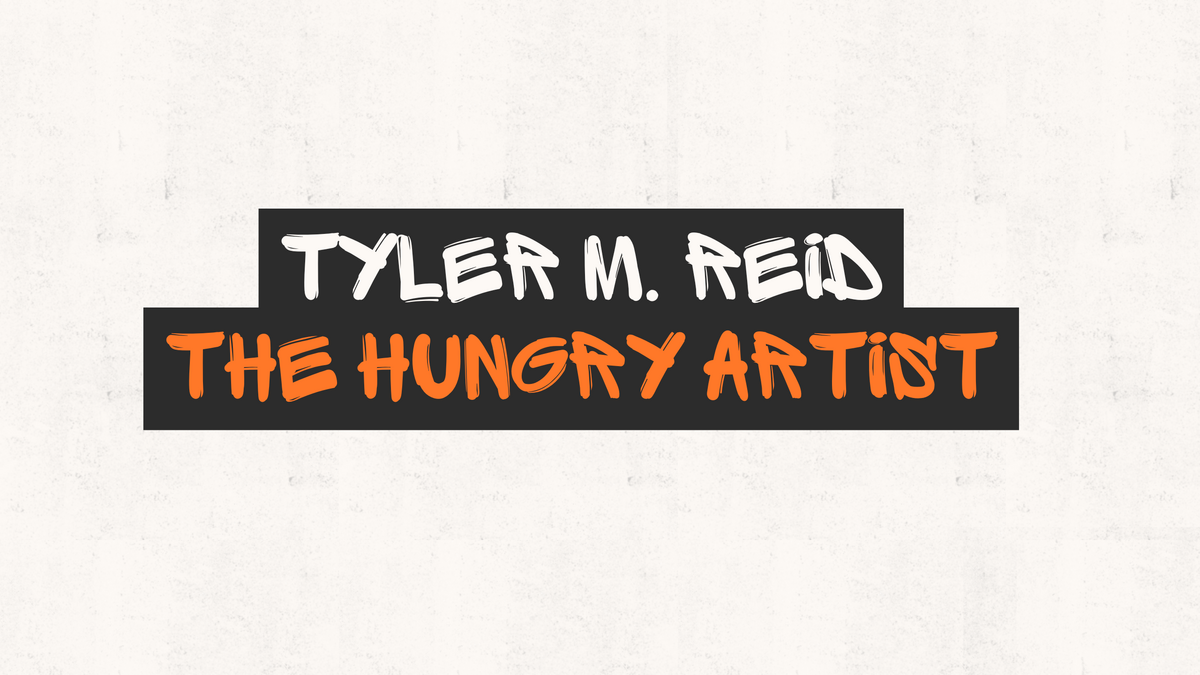Sponsored by
Let’s get serious
Your newsletter, now exiting the stratosphere.
We’re beehiiv, the newsletter platform built for builders. Every product we drop and feature we create is made with one goal in mind: exponential growth.
Our founders sought to bring the tools and tech to creators everywhere that helped turn their old company into a multi-million dollar operation. So when we say we can take you from “up-and-comer” to household name, we mean it.
If you need a beautiful destination for your content, use our no-code website builder. If you want paid subs, we don’t take a dime. If you want big name sponsors, we connect you with the likes of Nike and Netflix.
In short: maybe your newsletter is stuck on the ground floor because your newsletter platform is stuck in the last decade.
Don’t be OK
When you're making a film with a micro or indie budget, there's little room for "okay" work. Audiences today are bombarded with endless content. They have a million options and only a few seconds to decide if your film is worth their time. If you don’t deliver something special, you’ll quickly get lost in the noise.
Think about the way you view YouTube. Do you get on, scroll through until you find just that right thing to watch, click on it, and watch all the way through? Probably not, you’ll click, maybe watch some of it, maybe it’s not what you thought it was going to get, it’s not as interesting as you thought, and you find something else to watch. This same concept applies to your indie film. Even if you don’t want to use YouTube as an example, you can use streaming platforms, how many times have you just scrolled and scrolled to feel like you can’t find anything to watch, even though you have a list of items in your saved sections to watch, yet you aren’t choosing those. Maybe you go to a different platform, maybe you watch something you’ve already seen because you just don’t know what to watch.
I say all that because you need to think about your own viewing habits when making a film. I don’t think enough filmmakers do that. I think too many filmmakers just assume people will watch their movie.
If you want people to watch your movie, then you need to make it the best it can possibly be, no matter the budget size. Great films can be made for the smallest of budgets, and a great film doesn’t have to be a big film, it can be something that all takes place in a house with just a couple of characters.
Don’t be perfect
This isn't about perfectionism either. That’s the other thing that can kill your film, but it kills it in the opposite direction because it may never get completed (sometimes it never even gets started). It's about setting your own bar high and refusing to settle for mediocrity.
I know budgets are tight. Time is limited. You’re juggling a million roles and responsibilities. But even with those constraints, you can still make something extraordinary.
Greatness is achievable, even on a micro budget. But it requires you to be strategic about where you focus your energy and resources.
Focus on the quality you can deliver, not the one you wish you could
If you only have enough to make a short film, then make that short film exceptional. Don’t try to stretch your resources thin by aiming for a feature you can’t properly execute. If your dream is a feature, take one of your favorite scenes and transform it into a powerful short. Show the world what you’re capable of with what you have.
Of course, you may be shaking your fist at me and saying “I don’t want to make a short I want to make a FEATURE”. If that is the case, then remember, there is no rush. If you don’t have the money just yet for the feature, figure out ways to get that money first, even if you just need another $25,000. Look at various crowdfunding routes or even sponsors for soft and hard money.
Don’t try to stretch it to make the film just work. Even if you can’t raise anymore money, are there things you can do that will make your film cheaper? I’m not a big fan of using this example but I will since most people know the film, Paranormal Activity was made for $15,000. Figure out what you have available to you and figure out how you can make the best film possible with the resources you have. Remember when Paranormal Activity was made, there was no inexpensive access to the incredible technology we have today.
Learn from the mistakes I’ve seen
When I was a screening coordinator at a film festival, I watched hundreds of films. One film still sticks out in my mind, not because it was amazing, but because it fell short in a glaring way.
It was a short film set in WWII, where American soldiers take refuge in a French farm. The concept had potential, but the execution was off. The props were too clean, the costumes pristine, and even the actors were well shaven and tidy. In a film about soldiers who narrowly escaped capture and are hiding in the midst of war, these details completely pulled me out of the story.
This is why attention to detail matters. If you’re telling a war story, don’t just throw together costumes and sets. Make sure they fit the world you’re creating. A pristine soldier in a war zone doesn’t make sense. You may be thinking I was looking for those kinds of details because I was a screening coordinator, but that just wasn’t the case. It really jumped out at me, “everything looks just so clean and nice”. Is that the line between what could make something OK and make something great… just maybe actually. Everything was there, the story was good, it was all contained in one location, but it just felt off, it felt like an OK film.
The reason I bring that up is because, it can sometimes just be a small detail that may not add much extra cost or time to your project that makes it go from OK to great. Something that people feel turned off by but don’t quite know why so they click on something else to watch.
You can’t afford to compromise on the things that matter most.
The value of greatness over size
It's far better to create a smaller, great film than a larger, mediocre one. Every time you compromise on quality in the name of scale, you're teaching yourself that it's okay to cut corners and that mentality will follow you in your future work. You can cut scenes or characters, or combine things, but don’t just do something for the sake of doing it, so that it’s in your film. Every great filmmaker has had to leave a lot on the cutting room floor, or pages of scripts shredded away before they even started filming so they could make a great film.
If you aim for excellence with every project, no matter the size, you’ll build a reputation for delivering quality. And that will pay off in the long run.
Make what you can, but make it incredible
You want to bring your best work to the screen. So, take a moment to really assess what you have. What resources do you have access to? What talent can you draw on? How can you maximize every dollar and minute to make your film as incredible as possible?
There’s no shame in being limited by your resources. What matters is how you work with what you’ve got. Set your expectations high for yourself and your team, and refuse to settle for anything less than the best you can create with what you have. It may be tough, but it’s worth it.
The more you push yourself to deliver great work now, the more likely it is that your future projects will reflect that same level of excellence. Start where you are, with what you have, and give it everything you’ve got. Because in filmmaking, it’s not about how big you go, it’s about how great you make it.
As you may know I am pre-launching my indie filmmaking course. There has been a delay in getting it launched because I wanted to add something extra and special to it.
Now all course members will have the opportunity to attend live digital talks with industry professionals as well as a Q&A. So far there are seven guests from an academy award winning producer, to industry veteran distributors, and even a director who raised a million dollars for his first feature film.
The goal is that with their insights and your questions, you will have even more tools and knowledge to go out there and make your film.
The course will fully launch in May, but if you pre-order the course now, it will cost $30 cheaper than when it launches.



